Moving to Senior Living: Everything You Need to Know for a Successful Move

Download this checklist, share with family, or keep scrolling to read.
.png)
Moving to Senior Living: Everything You Need to Know for a Successful Move
Download a PDF version of this guide by filling out this form.
Share this resource
Copy the link to share with friends and family via text, or use the button to send it by email.
.png?)
1. Starting Your Journey
Change can be exciting, but it can also be stressful because of the unknown. Whether you’re adopting a new cat or dog, your family member is moving to a new residence, your grandchild’s attending the first day of school, or your child is leaving the nest, any type of change can be hard.
Why is this such a common experience? It’s because of the human craving for routine. Routines make our lives predictable so we know what to expect. Change disrupts our routines and can sometimes make us feel overwhelmed.
However, sometimes the temporary discomfort and disruption that accompany major life changes are worth enduring because of the huge payoff and incredible benefits. Moving into a senior living community is one of those changes that can feel overwhelming, but it provides a substantial reward.
The right senior living community can improve your quality of life, enable a low-maintenance life, and free up more time to spend time with family members—all while providing the exact balance of independence and support you need. But before you can enjoy all of these benefits, you have to navigate the challenges of preparing for the move and get over the hurdles of rightsizing, packing, and moving in.
The experts at Cedarhurst have plenty of years of experience helping residents move into our senior living communities, and we’re here to support and guide you through this exciting change. Let’s take a look at the strategies we’ve learned over the years to lower moving-related stress and create a smooth transition into your new home.
Explore Related Resources
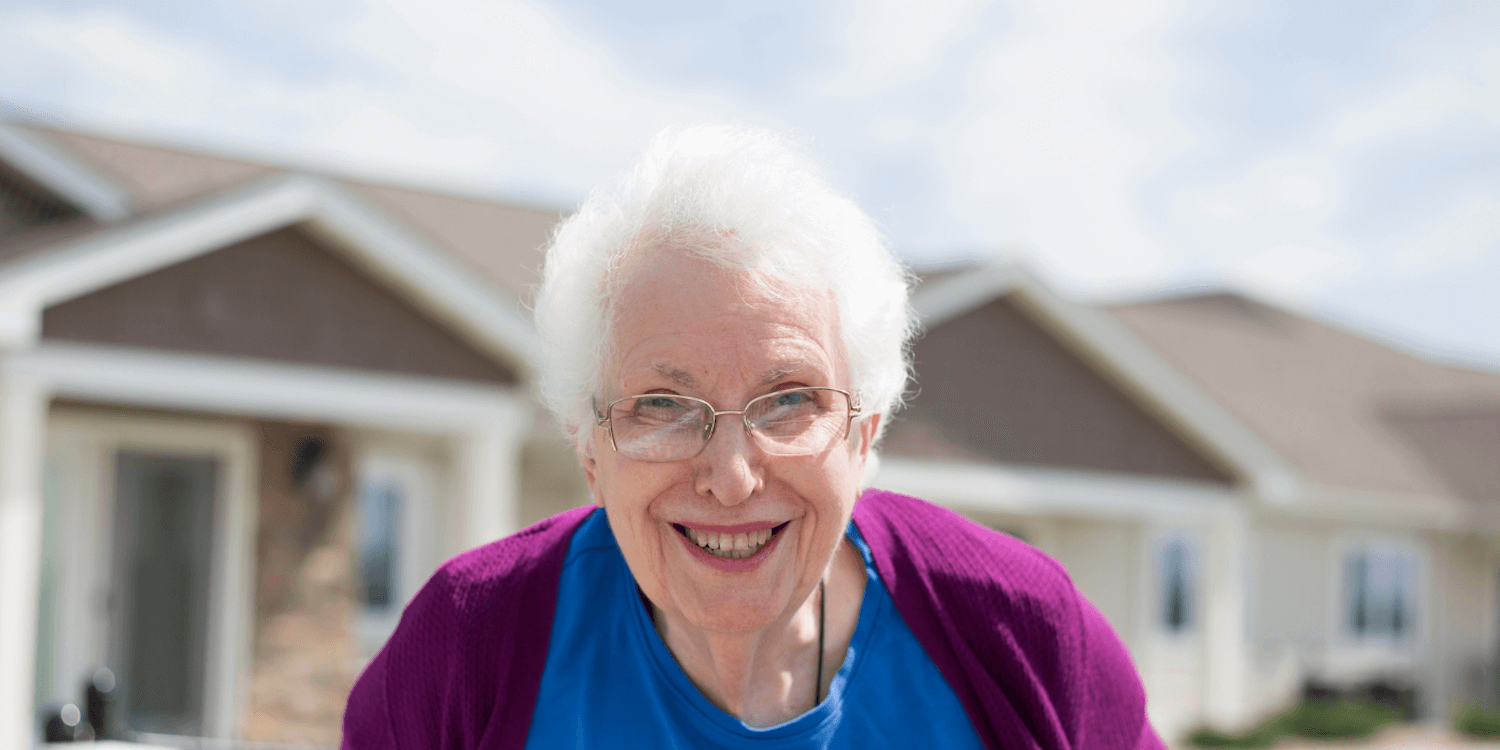
Is a Senior Living Community the Right Choice for Your Aging Family Member?
How do you know if a senior living community is the right choice for your aging family member? Discover the different options and levels of care available.
Learn What to Expect
12 Essential Questions to Ask When Choosing a Senior Living Community
Find out which questions to ask when choosing a senior living community so you can ensure it meets your family member’s needs.
Gather Your Questions
2. Preparing for Senior Living: A Moving Guide for Seniors
As with any change, uncertainty can be a major source of anxiety. You’ll find the move easier if you spend some time getting to know the community.
Gather a list of upcoming community events you’d like to attend, so you have something to look forward to after moving day. If possible, spend some time in the community before your move. This gives you a chance to make new friends, get to know the community culture, and begin building a sense of comfort and familiarity even before you move in.
Some other strategies that can help make preparations more manageable include:
Coordinate your move-in date and other details with the community.
The community may have a specific time at which you should move in, and the staff may also offer tips and additional support that can make the senior living transition feel more manageable.
Consider which necessities will be provided for you.
Are there items you have at home that you won’t need in a new community? For example, many communities build grab bars and other safety systems into showers, so you won’t need to take these items with you.
Ask family members for help.
Consider making packing and organizing into a fun family event rather than the drudgery you worry it might be. For example, you could schedule a family movie day and pack while you watch old favorites.
Consider renting a storage space.
If you’re struggling with rightsizing, renting storage space gives you more time to assess whether you miss (and want to keep) the items you put in storage. Some people also use the transition to a new community as a chance to give their family members important items now. If you plan to bequeath heirlooms, consider doing it before the move.
Spend some time planning how to decorate your new space.
Imagining decorative possibilities can build a sense of excitement for a new residence. Buying a few pieces you love, or even just investing in some cute new storage boxes, can help build anticipation.
If the move is sudden or unexpected, keep these essentials in mind.
In many families, a crisis is the trigger for a move. You might be doing most of the packing on behalf of a family member who needs to move quickly.
If you’re helping a family member move into assisted living on a quick timeline, the following strategies can help:
- Ask your family member for a detailed list of the items they need most.
- Keep everything as organized as possible. Pack things according to the space they will be moving to, then neatly label everything.
- Prioritize the things that will help your family member feel comfortable from day one. Rather than trying to pack an entire home up all at once, make a list of the most important basic needs. This might include:
- Clothing, toiletries, medication, and so on: Consider the items your family member will need every day.
- The tools for a beloved hobby: If their bedside table is stocked with new books or you know they love houseplants, be sure to prioritize these items, so your family member can immediately do the things they enjoy most when they move.
- Sentimental items: A beloved wedding photo or heirloom quilt makes a new residence feel comfortable and welcoming.
Explore Related Resources

Understanding Your Senior Living Options
Start your research now. Get the essential guide to navigating all senior living choices.
Navigate Senior Living Options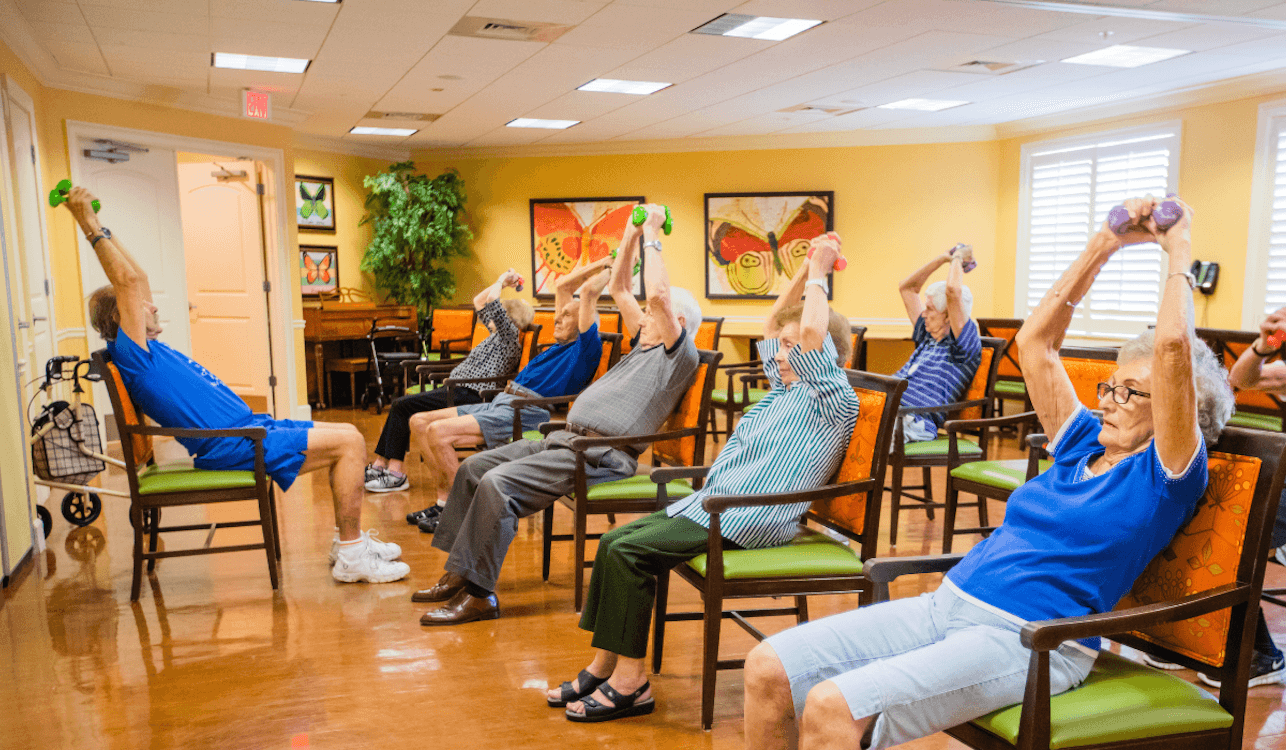
Comparing Memory Care, Assisted Living, and Independent Living
Narrow down senior living options by differentiating between memory care, assisted living, and independent living.
Discover the Differences
The Difference Between Care Types at Senior Living Communities
Explore the difference between senior living care types to make more informed decisions.
Explore the Types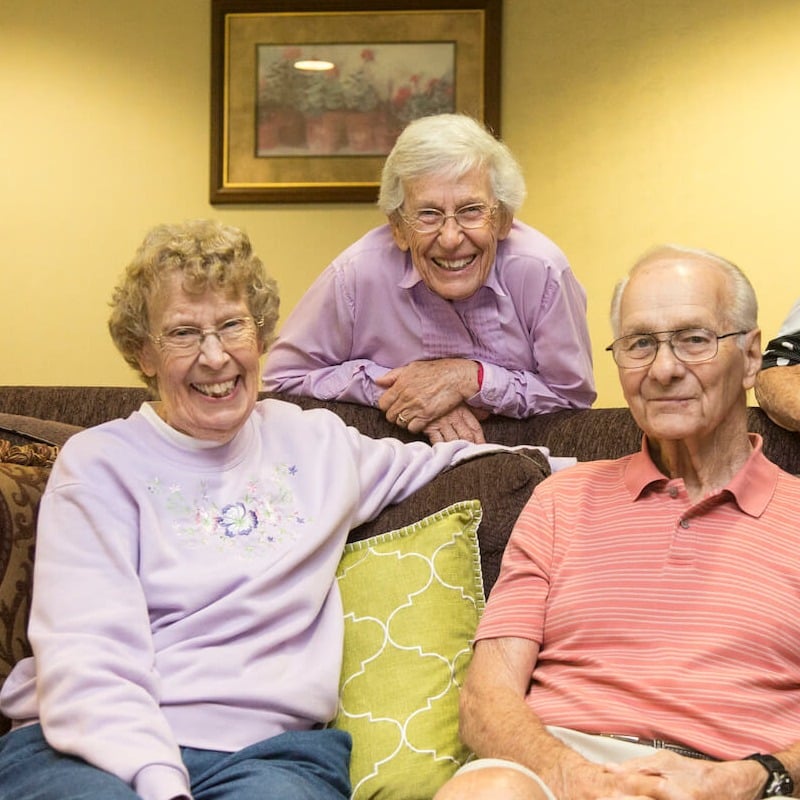
3. Top Tips for Moving Day
Moving day will be here before you know it—and it can fly by faster than you anticipated!
Your first few days will feel most comfortable if you can get the majority of your unpacking done quickly, so plan to start early on moving day. That means getting a good night’s sleep the night before and a healthy, nourishing breakfast that will keep you going during the day. Some people like to order take-out from their favorite breakfast restaurant and enjoy a big meal with their family before they get going.
Some strategies that can help move-in day proceed as smoothly as possible include:
Get the right help, and plan ahead.
Get clear commitments from family members who are going to help you move, and assign duties ahead of time. If you’re moving lots of boxes or heavy items, hire movers if you can. Even if you could move everything on your own, outsourcing some of the work will mean you have more energy to unpack and enjoy your new space.
Make sure you have snacks and water ready during the day.
Dehydration and hunger can dampen your spirit and make the move more stressful than it needs to be.
Leave your door open on moving day.
Move-in day is a great time to meet your new neighbors, who will be curious about you. They’re more likely to stop by if they see an open door, and this is a great way to make new friends. They may even offer some help, a handful of community tips, and a snack or two.
Staff members may also stop by to say hello during moving day. However, if these social interactions make you feel stressed or overstimulated, it’s perfectly acceptable to close the door or request that team members come back at another time when things have quieted down.
Tackle the big items first.
Focus on unpacking, assembling, and setting up the biggest items while you have help. This principle especially applies to furniture! Tackling the biggest items first will make the rest of the unpacking feel manageable, and it means you’ll be less likely to live out of boxes for weeks.
Ask for help from community team members.
They’re the experts on moving into a senior living community. They can assist with navigating the transition, setting up and making the most of your new home, and handling tasks such as moving boxes. They’re there to help!
Think about how you have handled prior transitions.
What changes have been most difficult for you? Do any specific triggers, such as hunger, tend to cause stress reactions? Knowing yourself can help you develop a plan for self-care that makes moving better—and potentially even fun.
Explore Related Resources
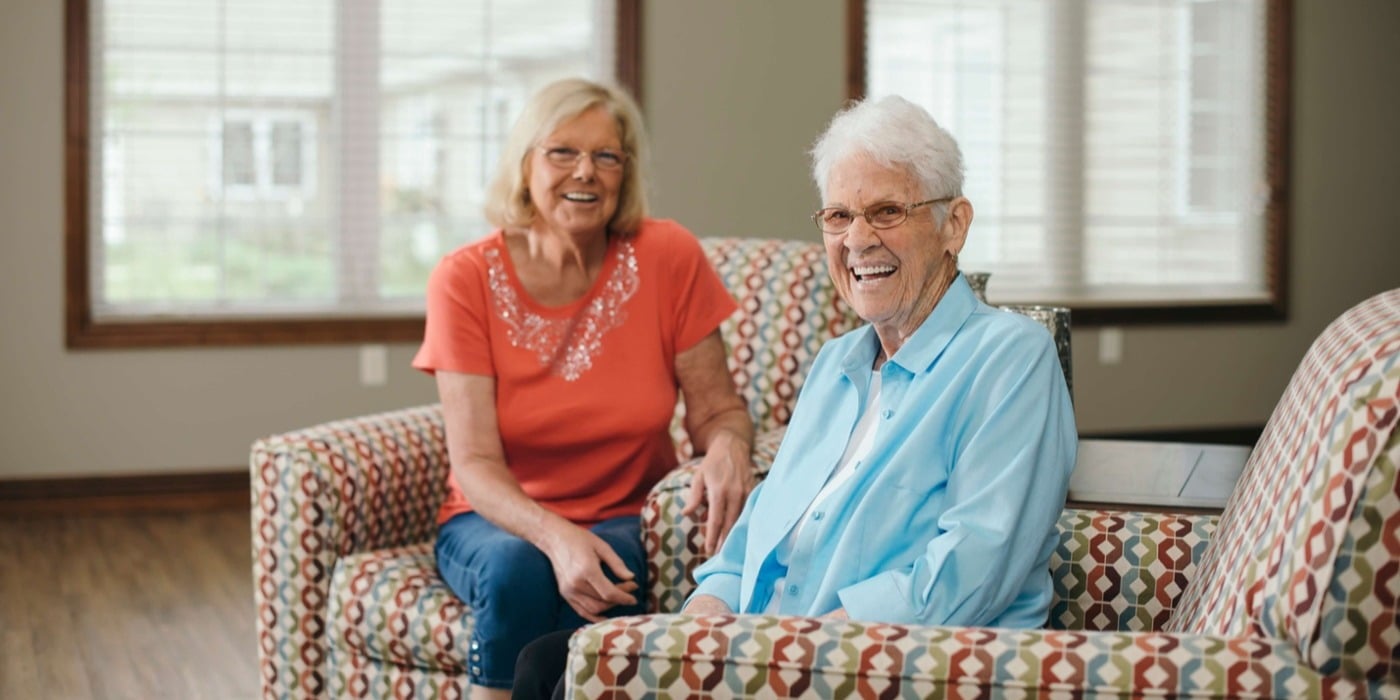
Moving Day Tips: Moving Your Family Member into Senior Living
Ensure moving into senior living goes as smoothly as possible with these essential tips to get you through planning to the move-in day.
Get Our Tips
Senior Home Safety: Essential Tips for Preventing Falls and Accidents
Find out how to create a safe environment with these senior home safety tips to prevent falls, medication errors, and more.
Keep Seniors Safe.png)
What the First Day Living in a Senior Living Community Looks Like
Your big move to senior living is finally here! Learn what you can expect during your first few days of community life.
Set Your Expectations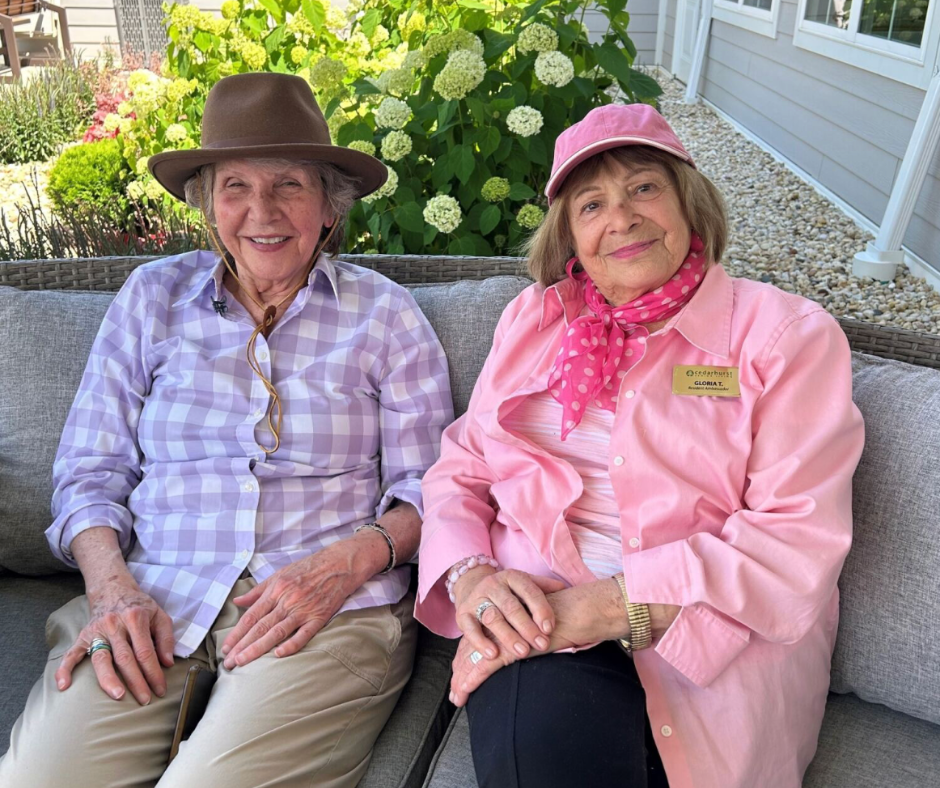
4. Strategies for Getting Settled After a Senior Living Transition
According to one of the world’s best-known stress scales, some of life’s most stressful events are also some of its most positive ones—pregnancy, getting married, and buying a home, for example.
It may take some time to adjust to your new home and your new life. Trust yourself and your ability to make good decisions even when it takes time to acclimate. Be prepared for first-day (and second- and third-day) jitters.
Some strategies that can prove especially helpful include:
Practice great self-care.
What tactics have helped you the most during previous transitions? Try putting together an emergency self-care bag that has your favorite snacks, some easy activities, and any items that always boost your mood.
Pack an overnight bag that includes all of your basic needs.
This way you don’t have to go digging for your favorite sweater at bedtime or worry about locating your medication.
Plan a special treat your first night there.
You might have a small family gathering, start a new book, or order take-out from your favorite restaurant.
After you’ve unpacked your furniture and other basics, decorate with your favorite art or other sentimental items.
This creates an inviting space that immediately feels more like home. It also creates a conversation piece that can help you easily strike up a chat with your new neighbors.
Spend some time getting to know your new neighbors.
Head down to the dining room for a meal, or introduce yourself to the folks who live next door. This can help you begin building a meaningful sense of community that will inspire you to get out, get involved, and get started living your best life.
Explore Related Resources
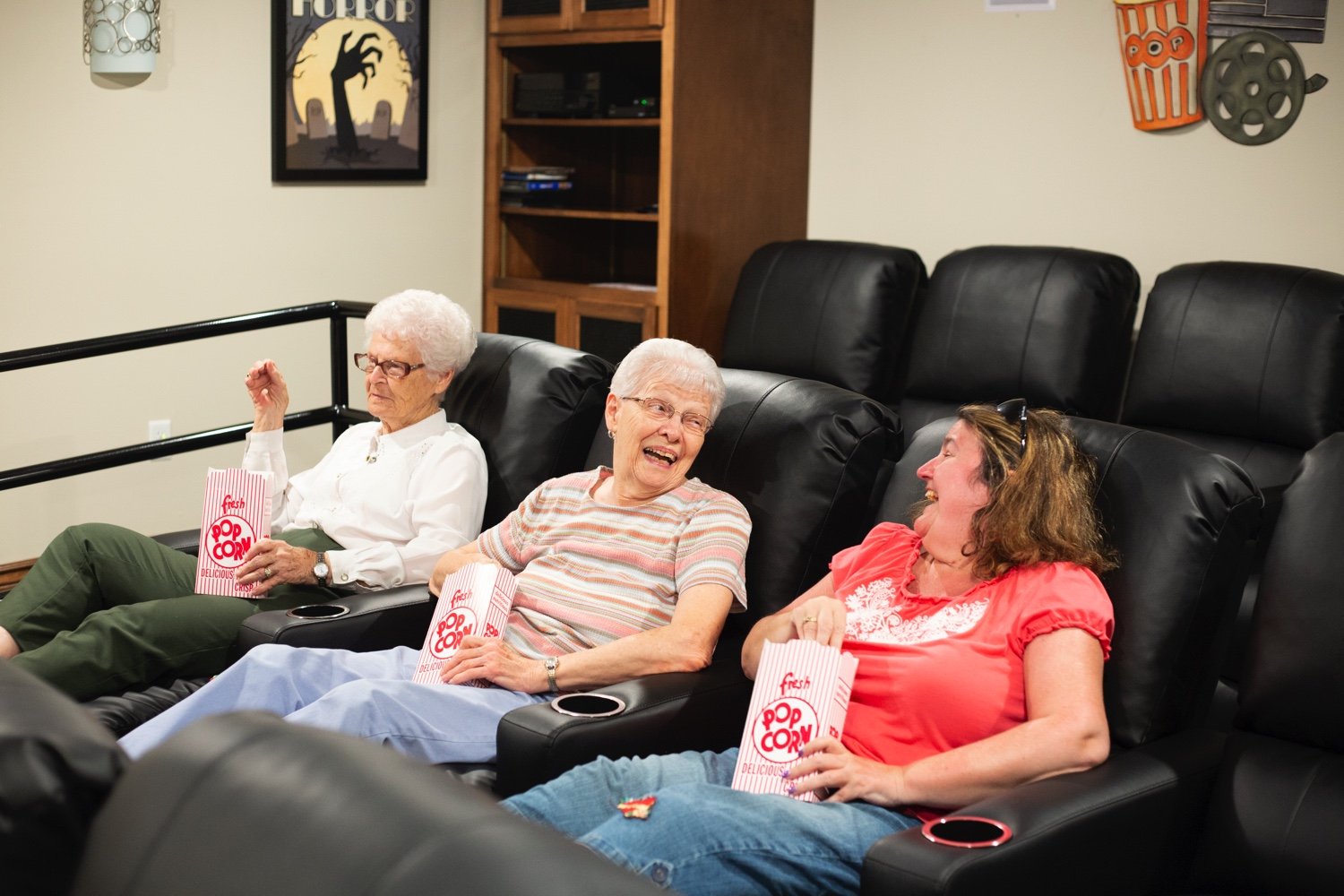
Having the Conversation About Senior Living
This guide walks you through the initial steps of the senior living journey, such as identifying signs that it's time for a move and having productive conversations with family members.
Start the Conversation
How to Talk to Your Parents About Senior Living Options
Talking to a parent about senior living isn’t always easy, but you can better prepare everyone for the conversation with advice from Cedarhurst.
Get Our Advice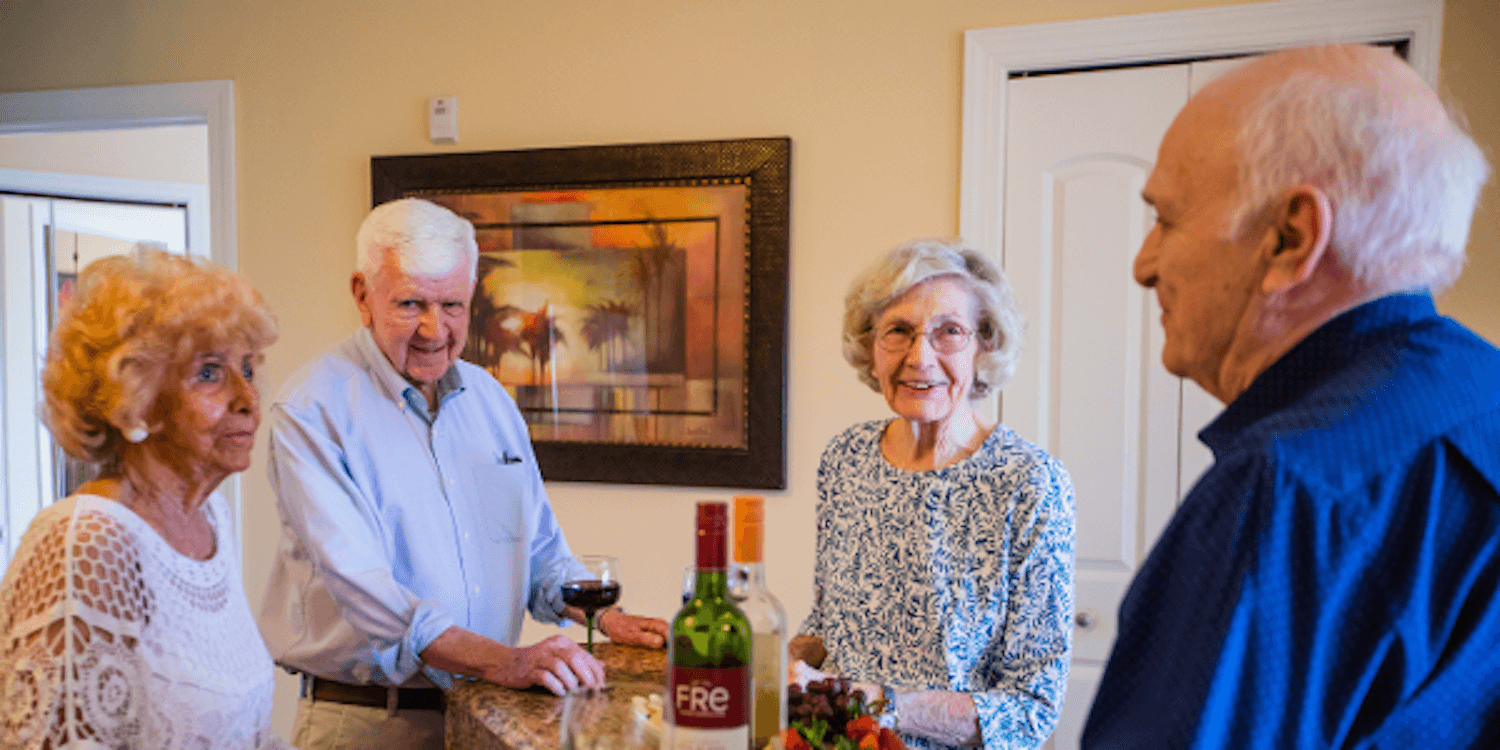
Planning Ahead: When to Start Looking into a Senior Living Community
When should you start looking into senior living communities? Here are five signs that it's time.
Make a Plan
5. How Family and Friends Can Help New Senior Living Residents
Whether you’re spearheading the move or just helping a family member settle in, you’re a vital ingredient in the recipe for a successful move. A little extra TLC in the first few weeks can help ease the transition as your family member settles into their new home.
Consider sticking around for a few days.
Even the most outgoing social butterfly can struggle to meet people in a new setting. Multiply your social skills by two with the Pair to Prepare™ program, where residents invite someone to stay in the community with them during their first few days, free of charge, to help ease the transition.
Stay in frequent contact with your family member.
Make a list of community events to attend together, and schedule a time to catch up on the phone or in person. Text to check in throughout the day. Then let your family member set the pace and tone of communication. If they seem anxious, reach out more. But if they seem annoyed or distracted, it may be a sign that they need a little less support.
Center your family member’s feelings, not your own.
Don’t be dismissive if your family member seems anxious or uncertain—or even angry or resentful. Telling your family member to calm down or insisting that they remain positive does not make the negative feelings go away, but talking about them and problem-solving together might. Remember that your family member is entitled to the full range of human emotions about this change and about all of their experiences.
Act as a social buffer if you can.
Try attending community events with your family member or helping them plan their social calendar. If you’re more extroverted than your family member, you may be especially helpful in facilitating social connections.
Encourage other family members to reach out and visit often.
You can also serve as a point of contact and communication for updates on the move. Try sending out emails or texts to keep everyone in the loop and encourage people to schedule a time to drop by.
Recognize that it’s also normal for you to have mixed emotions about your family member’s senior living transition.
You might feel exhausted by the move itself, worry about whether this is the right decision, or even feel guilty. Maybe you feel relieved because you no longer have to offer so much support. Or perhaps you’re worried about whether you’ll be able to help your family member navigate moving into senior living.
No matter what you feel, it’s the right way to feel. Our emotions are just feelings, not facts. And you, like your family member, are entitled to the full range of human expression.
However, remember this is your family member’s senior living transition, so it’s important to find healthy ways to manage your own feelings. Try some of the following strategies:
- Practice good self-care in between visits. Self-care is not selfish; it’s vital to your ability to support your family member.
- Don’t force your family member to manage your emotions. As they move into a senior living community, they’re the one facing the most stress. When you need emotional support, turn to people who are less affected—friends or other family—for support.
- Look into support programs for caregivers. There are several resources available for family caregivers, including support groups. You can often find these groups in the community your family member has moved into.
- Ask questions about how best to support your family member and what to expect in the coming months. The community team members are experts at helping families get acclimated to community life. They are there for you, so reach out.
- Take breaks. No one can be another person's sole source of physical and emotional support. If you need a nap during the move, a break from a stressful phone conversation, or a few hours to yourself, know that these are reasonable requests.
Explore Related Resources

A Complete Guide to Financial Planning for Senior Living
Download your complete guide. Get expert advice on budgeting and securing your financial future.
Explore Financial Options
The Insider's Guide to Understanding Assisted Living Pricing
Uncover the true cost of assisted living. This guide breaks down pricing and helps you understand which factors go into monthly and yearly costs.
Break Down the Costs
The Insider's Guide to Understanding Memory Care Pricing
When it comes to memory care, one price doesn’t fit all. Download your guide now to get a clearer picture about what to expect when it comes to the cost of memory care.
Explore Memory Care Pricing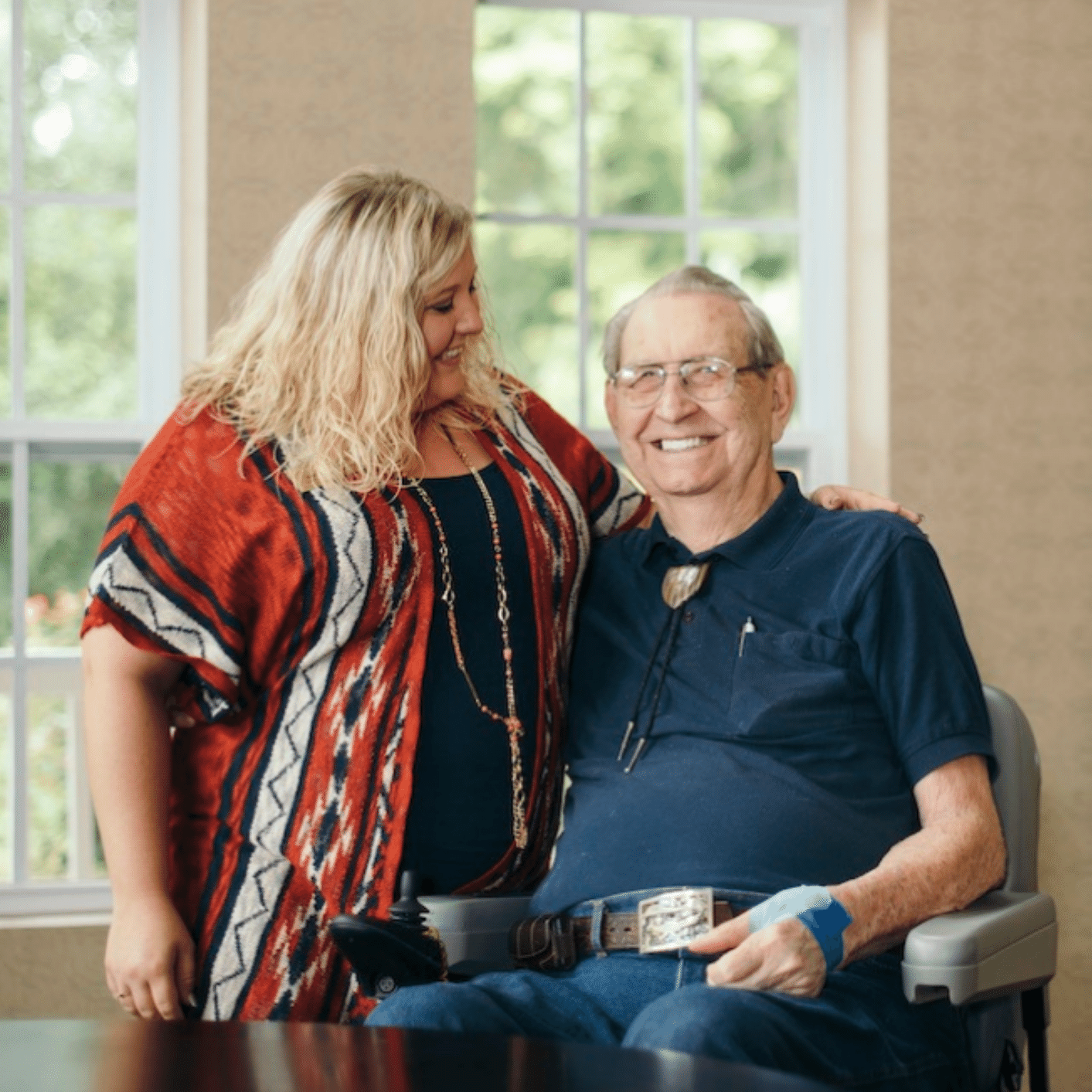
6. Need Reassurance? We Can Help
You can’t adapt to a new routine, a new place, or a new community overnight, and you shouldn’t have to. Most residents say they wish they had moved earlier, and they can’t believe the benefits of a great community. That doesn’t necessarily mean they felt that day from day one.
Making a decision about your future can be difficult, and we know you may feel anxious about what to expect—and how long it will take to adjust. Rest assured that you’ve made a great choice. The right community is a path to an enriched life with less stress, more time to do what you love, deeper and less conflicted relationships with family members, and a meaningful sense of community.
Some strategies to ease your anxiety include:
Take advantage of the Pair to Prepare™ program.
Our relationships make life worth living. They also help us navigate transitions. Our innovative Pair to Prepare™ program encourages residents to select a family member to stay with them for the first few days, at no additional charge, as they become acclimated to our welcoming community.
Learn as much as possible about the community before you move.
Email questions or ask them in person. Attend community events. Deepen your understanding of what to expect when you move. This empowers you to focus on moving and building a schedule you love rather than wondering where to eat or what to expect day to day.
Use the buddy system.
Get to know a few long-time residents to get the inside scoop on what to expect and how to make the most of community life. Then you’ll have ready-made connections when you move in, plus someone to go to when you need advice or tips on the best activities. Community events are a great place to make friends before moving in.
Ask community team members for help and support.
Each team member’s job is to make life better and easier for residents, so don’t shy away from reaching out as needed.
Explore Related Resources
.jpg)
A Day in the Life: Assisted Living
Check out this love story about assisted living residents who are bringing the beauty and whimsy of butterflies to their Cedarhurst community.
Read the Hart's Story
What to Expect When Your Parent Chooses a Senior Living Community
Learn what to expect when your parent chooses to spend their retirement at a senior living community.
Discover What to Expect%201%20(1).jpg)
Unlock Heartwarming Moments During Family Time at Cedarhurst Senior Living
When a family member moves to a Cedarhurst community, that doesn't mean you can no longer have quality time together.
Get Involved at CedarhurstReady to start your senior living journey?
Ready to live a low-maintenance life? Let us show you what senior living can do for you! Schedule a tour of a community.
Find a Community
Explore locations to view pricing, floor plans, and care options near you.